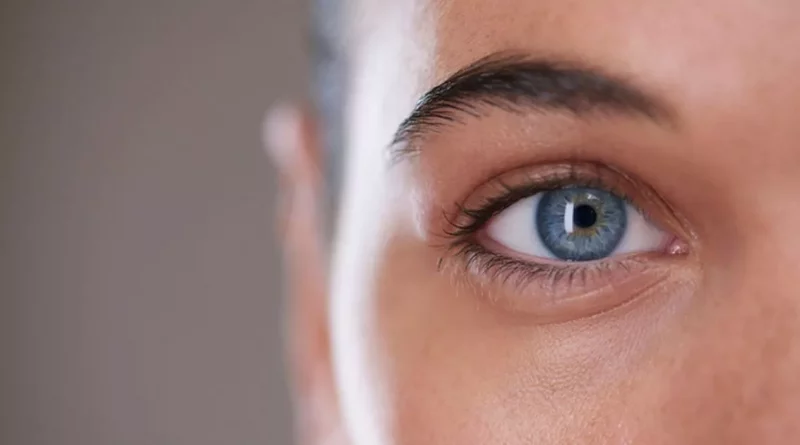Nine reasons your eyes are suffering this winter – and how to avoid infections
We should all pay more attention to our eyes.
It's super important we look after them, and be aware of any changes. The winter is a time when many of us may start to notice our eyes are suffering, and there are many reasons why this may be the case.
Sultan Dajani, Community Pharmacist and Adviser toGolden Eye, said every season brings challenges for our eyes and winter is no exception. The cold weather and harsh winds outside, colds and flu running rampant, drying central heating and glare from the winter sun can cause problems, but many issues can be largely overcome with some simple tips.
READ MORE: Your boobs itch for a reason – and it could be because of your manky bra
Read all the latest lifestyle news by the team at Daily Star
For many of us, winter is the time to snuggle down and spend more time at home. It’s a time for boxset binges, Netflix or movie marathons, baking galore and lashings of hot chocolate.
But how many of us realise that winter can also cause eye health miseries too. There are many things that can encourage it, but it's often nothing to worry about.
You just need to know what signs to look out for in case you need medical assistance.

Cold weather
When the weather outside is cold, the air around us becomes drier. When this happens, the surface of the eye, which is mainly water, loses moisture due to evaporation.
This can cause the eye to become dry and produce insufficient tears to keep the eyes moist. It's important to keep our eyes and surroundings moist to reduce the symptoms of dry eyes.
Central heating
Central heating can make already dry eyes feel worse. Don’t rub your eyes as you risk making them sore and introducing bacteria, which can cause conjunctivitis, blepharitis or styes.
Try not to overheat rooms where possible – open windows each day, even if only for a few minutes. Consider buying some eye drops from the pharmacy that are designed specifically to relieve any eye health infections like styles or blepharitis.
Sunglasses aren’t just for summer
Snow and ice are reflective, so which means that the sun’s rays can reach you from below as well as above. UV rays are reflected off the surface of the snow, which can cause sunburn called photokeratitis of the eye. This means that sunglasses can be just as important in the winter as in the summer.
Furthermore, the low sun in winter can be dazzling, so take special care, especially when driving so don your sunnies. If you wear glasses, ask about having an anti-reflective coating added to the lenses to help avoid glare, particularly when driving.
Light up your life
If you are working from home this winter, good lighting is also important. You will see better and cause less eye strain in bright light rather than dim light.
If you wear glasses, you may feel that you need them more when lighting is poor. Try and sit close to a window during the day if you need to see something clearly, like the text in a book or magazine, but try and avoid light glaring on your screen if you are working on a computer or laptop.
Use multiple light sources in a room to increase the amount of light without relying on a super bright overhead light and consider warm light bulbs over cool blue type bulbs to create a more natural feel. Use lamps with directed light for tasks like reading and writing.
20-20-20
It can be tempting to submerge ourselves in laptops, phones and tablets when we spend more time indoors, but did you know this isn’t very healthy for your eyes? Staring at digital devices for long periods of time can cause headaches and tired or dry eyes.
Take regular breaks away from your screen by looking at something 20 feet away for 20 seconds every 20 minutes.

Eat your eyes to good health
As the saying goes "you are what you eat". That’s the case for your eyes too.
Your eyes are complex organs that need many different vitamins and nutrients to function properly. Vitamins A, C, E, B vitamins, lutein, zeaxanthin and omega-3 are all important for eye health.
Try to eat a balanced diet, rich in fruits, vegetables, whole grains, protein and healthy fats. Make sure you stay hydrated by drinking lots of fluids.
Coughs and sneezes spread diseases
Colds and flu can affect our eyes, causing pain and soreness along with the temptation to rub them often. If you are unwell, always make sure you keep your hands clean after blowing your nose or coughing and try not to rub your eyes.
This is especially important if you wear contact lenses.
Going out? Make-up mistakes
Going out? Does your make-up need a spring clean? Makeup brushes need cleaning regularly and pay attention to the use-by dates on your eye products.
Also, try not to share your make-up. Sharing your products and brushes may seem like a lovely thing to do with your friends but, no matter how clean you or your friends are, your make up and brushes may well be harbouring thousands of tiny bugs and germs. Once these get into your eyes, they can cause infections like conjunctivitis, blepharitis and styes, putting a huge dampener on your social spirits.
Daily eyecare routine
Regular eyelid hygiene is incredibly important, but how many of us can honestly say that we pay it any attention? You should bathe your eyelids daily and apply gentle pressure with a flannel soaked in warm water for five to 10 minutes. This softens the skin and any crusts attached to the eyelids.
Keep re-warming the flannel in hot water if it cools. Follow this with massaging your eyelids. With your eyes closed, gently press on the inner corners of your eyes to release any mucus-like fluid from the tiny glands there. Good eye hygiene can help to prevent infections setting in.
Want all the biggest Lifestyle news straight to your inbox? Sign up for our free Daily Star Hot Topics newsletter
Source: Read Full Article
